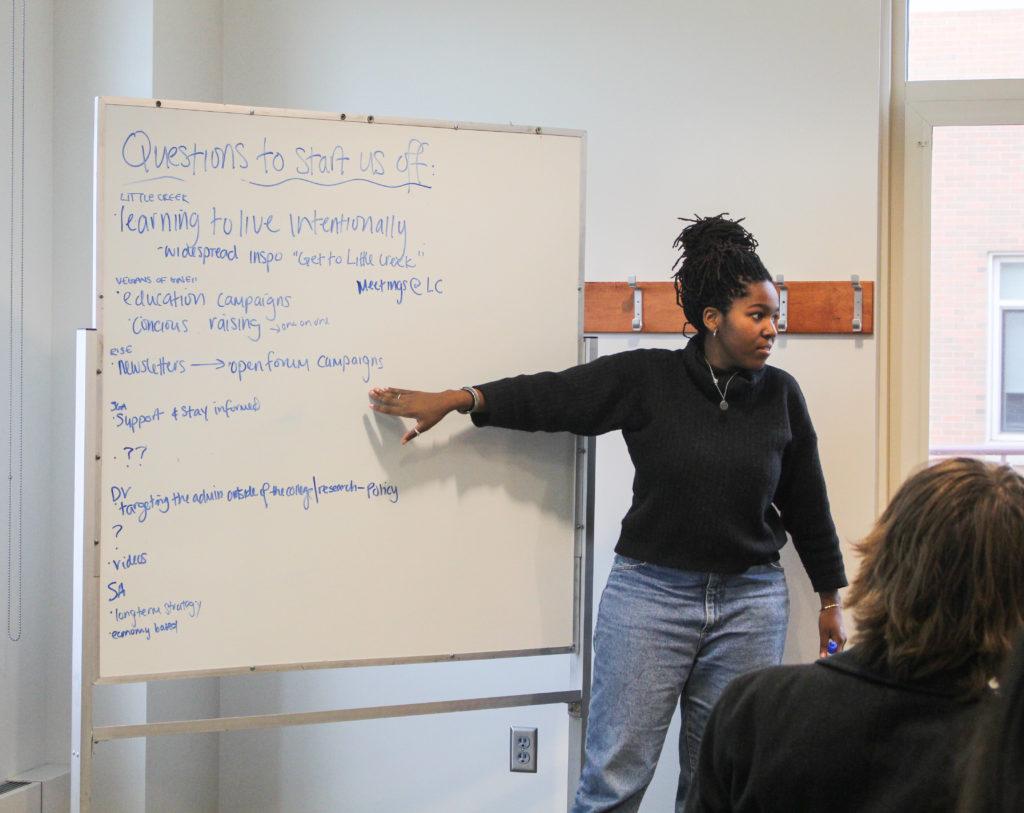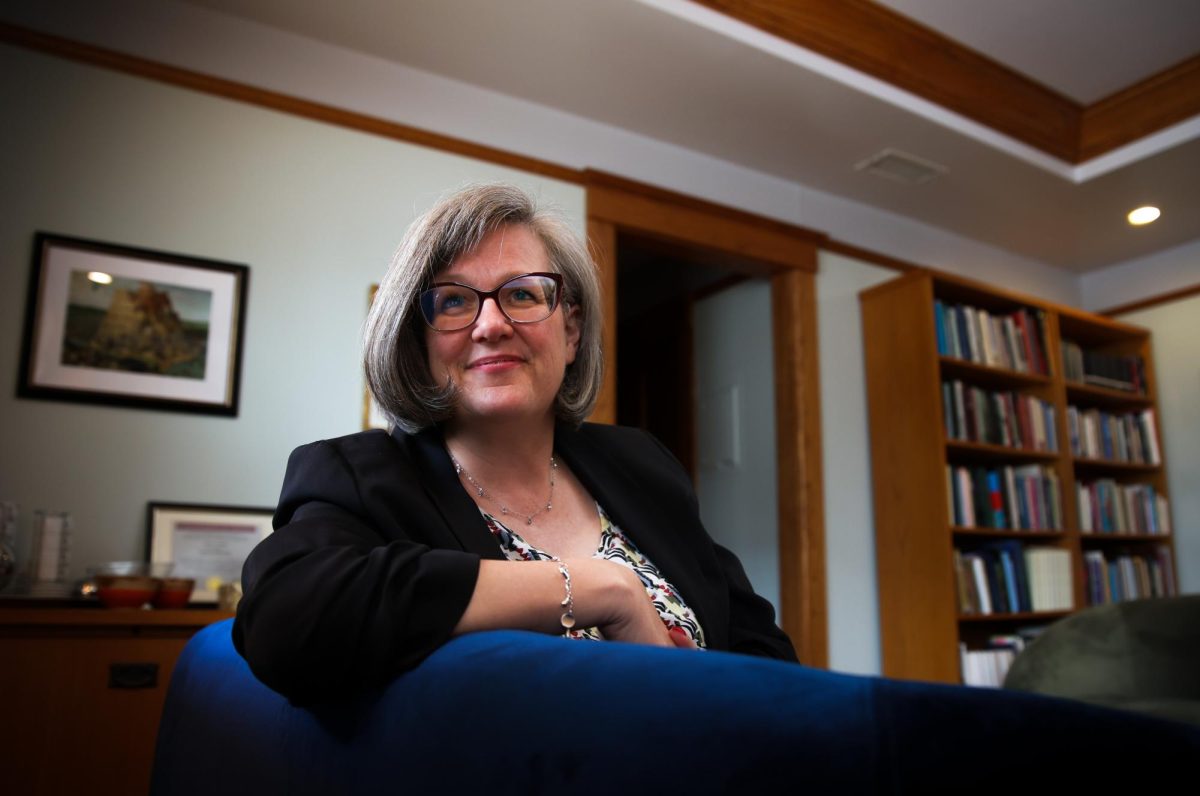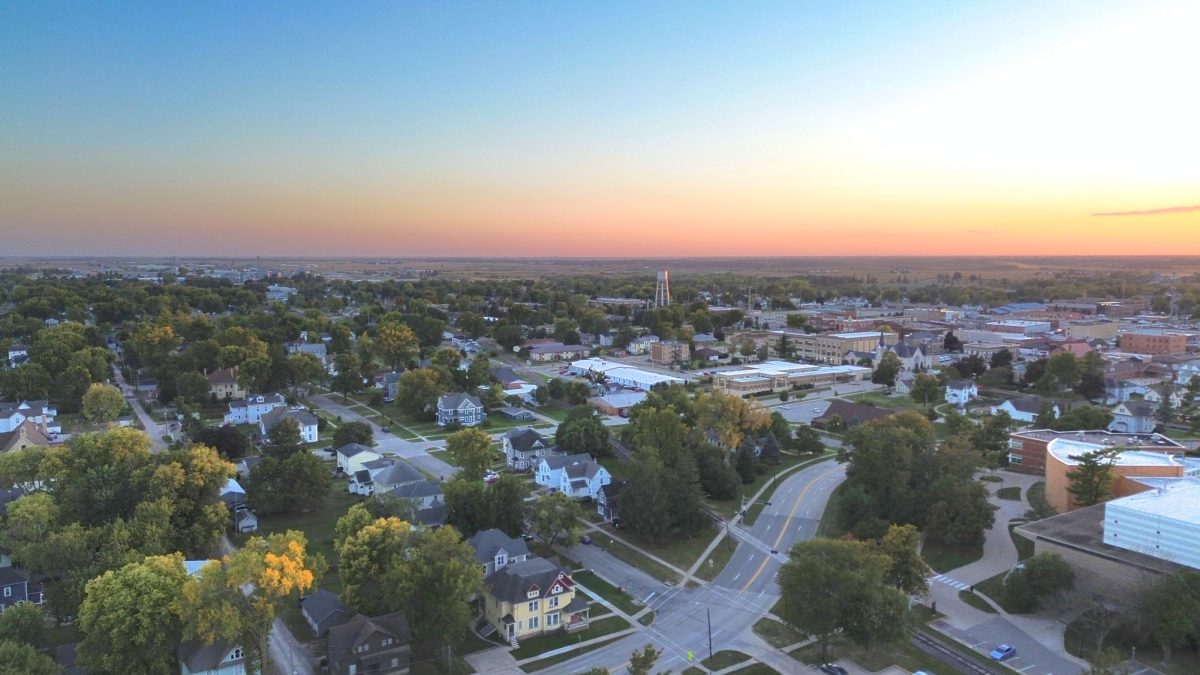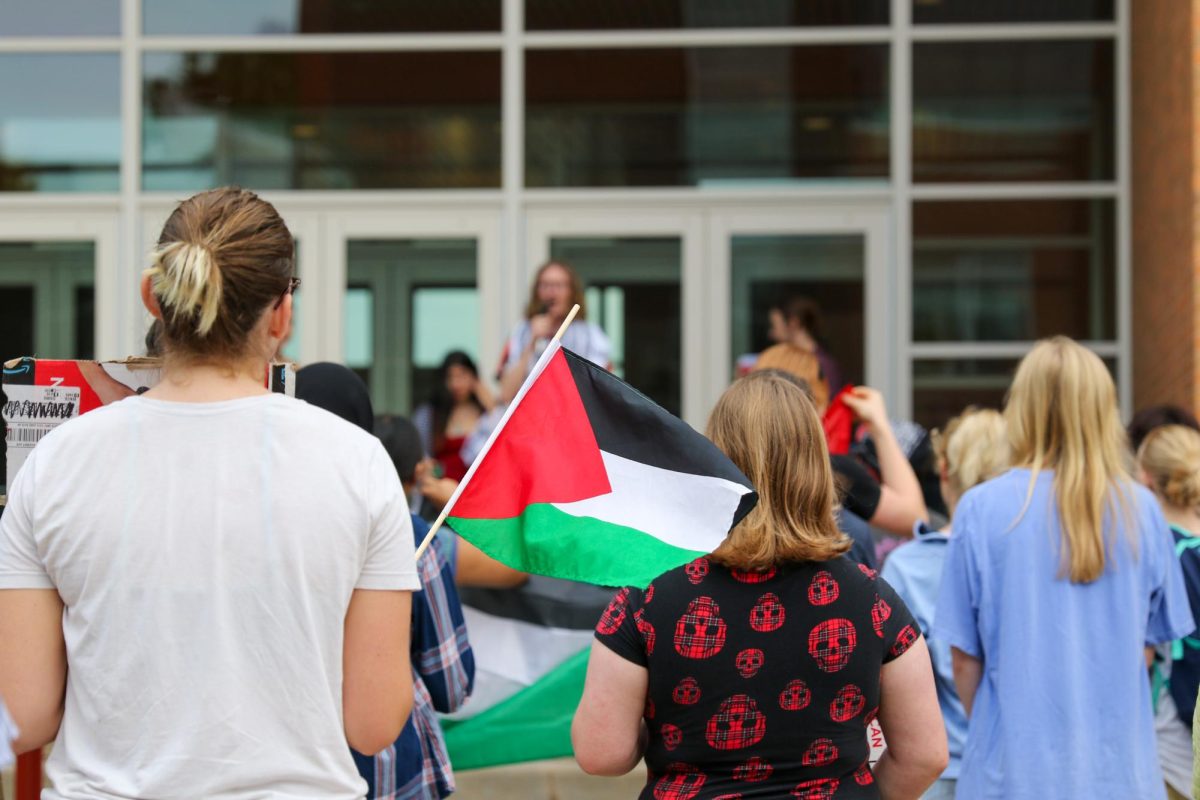By Candace Mettle
mettleca@grinnell.edu
Following up on the March 1st Day of Student Resistance, students from Occupy 8th Avenue and RISE Grinnell organized an activist summit on Monday May 1. The summit brought various on-campus activist groups together to build a coalition in hope of maintaining student activism after this year’s student demonstrations. Simonne Carlton ’18 and Morgane Garnier ’19, members of Occupy 8th, led the summit.
Eight groups attended the summit, including Dissenting Voices, Grinnell College Student Action, Monsoon, Little Creek, Grinnell Intersectional Vegans and SGA, which, as a nonpartisan force, affirmed their commitment to protect and help student activists.
“Our vision is to create the infrastructure, or a place for people to ask for help when need be, to get bodies in places for large direct actions and to show support for general causes that benefit the elimination of oppression or systems of oppressions,” Carlton said.
Carlton, as well as many of the summit’s attendees, hopes that this new coalition will fill the void that the Voicebox left. No longer as active, the Voicebox once provided a resource center for student activists to convene, learn about and enact opportunities for engagement with activism.
Participants in the summit discussed their roles as student activists: they addressed their organizations’ contribution to the College community; their difficulties in organizing actions and coordinating with the administration; trusting people who share their commitment to activism without being perpetrators of oppression; and their hopes for what the coalition will do. To discuss their ideas in depth, Carlton and Garner encouraged small-group discussions on the aforementioned topics among organizers from different groups.

Although they did not have strong positive or negative expectations about the summit, Carlton ultimately felt that the event went well.
“I was happy that there were a lot of people in the same place who were generally talking and happy about wanting to work together and not be separated for personal reasons,” Carlton said. They had worried beforehand that attendees’ interest in their own work might slow the establishment of a partnership. The end of the hour of the summit proved otherwise.
For campus groups that did not make it to the summit, Carlton and Garnier will host another summit in the fall. They plan to compile their mission statement as a coalition; stress how individual groups can maintain their distinct identities and focus on specific areas of oppression while being part of a larger activist group; and look at out how support will manifest within the coalition.
According to Carlton, each group might end up having a different interpretation of the purpose of the coalition, but they hope that most of the groups are on the same page about it.
“For me personally, support comes through commitments to show up to actions,” said Carlton.
Carlton also stressed the importance of coming to coalition-held events if students are interested in activism on campus, regardless of whether they attended the summit or have had experiences with activist groups in the past. Carlton believes that right now, students have the chance to build a legacy at the College.
“I want everyone engaged; please be involved,” said Carlton. “We’re on the beginnings of something big on campus and that could have a lasting impact on sort of the history and future of activism at Grinnell. If you’re an activist or a person who wants to incite social change or any type of change please be involved in this, it’s really a call.”






















































